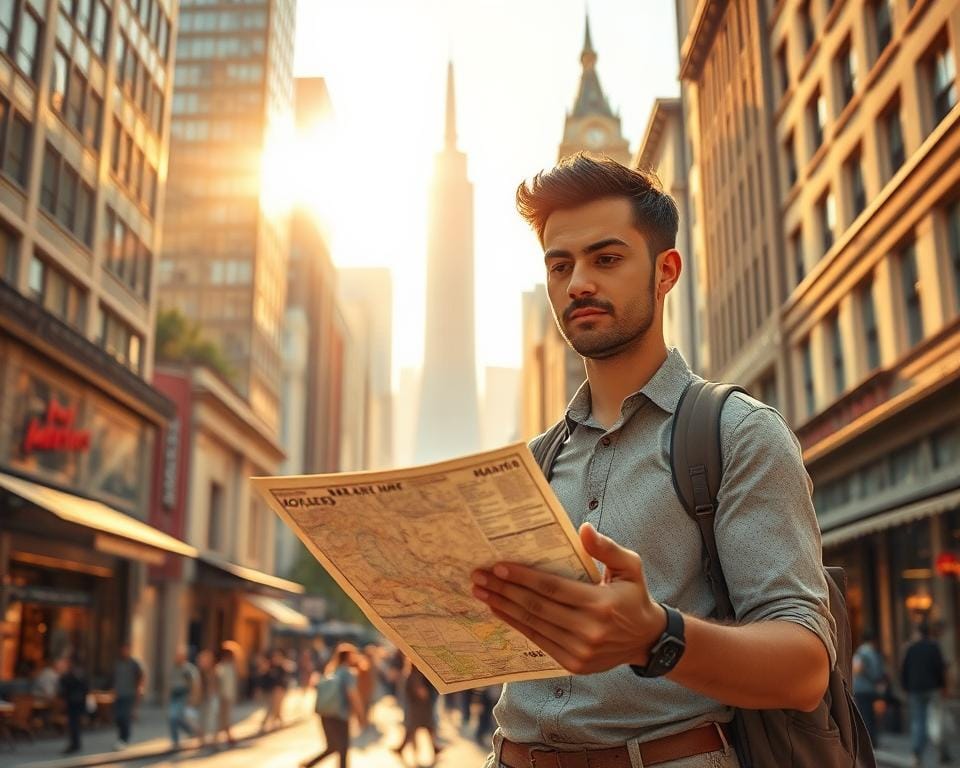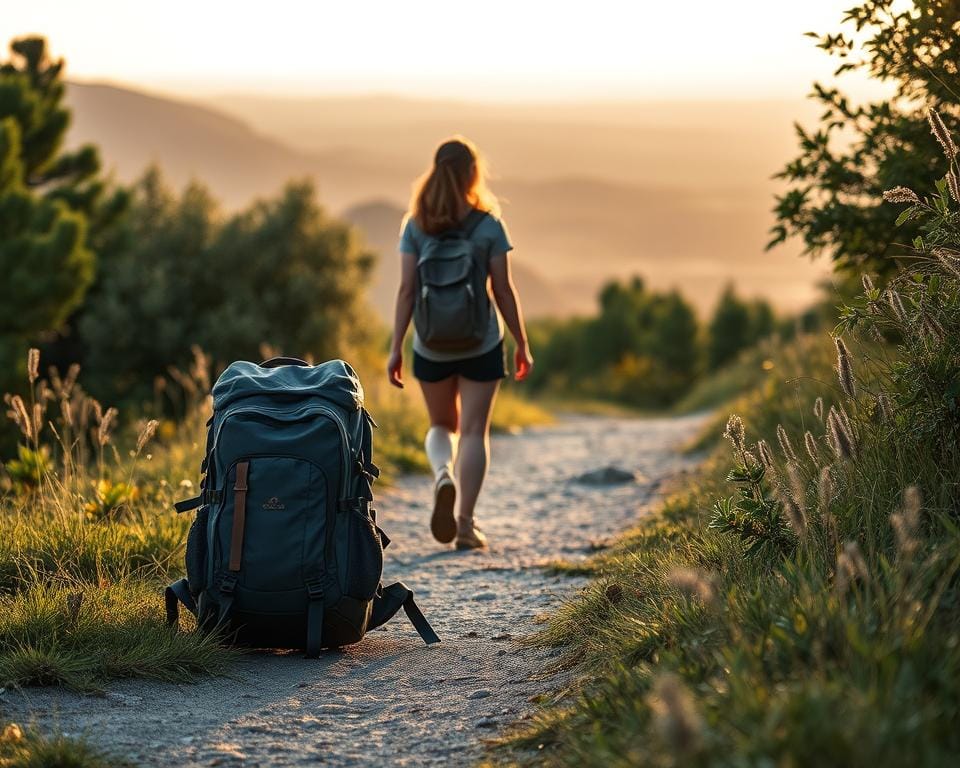What if everything you’ve heard about travelling alone is wrong? For 14 years, I’ve watched countless people transform anxiety into exhilaration through solo adventures. That flutter of nerves when booking your first independent trip? It’s not a barrier – it’s the doorway to life-changing experiences.
Let’s shatter the biggest myth straight away: travelling solo doesn’t mean being lonely. In reality, it often leads to deeper connections with locals and fellow explorers. I’ve seen first-timers blossom when they realise complete freedom means chasing sunrises in Cornwall or spontaneous pub chats in Edinburgh – no compromises required.
The secret? Preparation that fuels excitement rather than fear. This guide isn’t about rigid checklists. It’s about crafting your unique journey while sidestepping common pitfalls. From choosing welcoming destinations to budgeting tricks that stretch your pounds further, we’ll turn those “what ifs” into “why nots”.
Key Takeaways
- Solo adventures boost personal growth through unfiltered self-discovery
- Modern travel infrastructure makes independent exploration safer than ever
- Flexible itineraries often lead to unexpected friendships and local insights
- Strategic planning reduces pre-trip anxiety without stifling spontaneity
- Packing light physically and mentally enhances every experience
Understanding the Solo Travel Mindset
The magic begins when you swap “what ifs” for “let’s try”. My first solo trip taught me that adventure thrives in unplanned moments – like ordering the wrong dish in Barcelona and discovering my new favourite food. That’s the beauty of travelling alone: every stumble becomes your story.
Embracing the Adventure
I still get butterflies arriving somewhere new. Last year in Lisbon, I missed my tram stop and ended up sharing custard tarts with a local artist. These confidence-building surprises prove that getting “lost” often leads to life’s richest experiences.
Start small if big trips feel daunting. A weekend in York taught me more about trusting instincts than months of planning ever could. Chatting with shopkeepers boosted my social skills more than any guidebook.
Letting Go of Self-Doubt
That voice whispering “you can’t do this”? I silence mine by recalling navigating Tokyo’s metro alone. Each solved challenge – from decoding train maps to negotiating markets – chips away at doubt.
Remember: seasoned travellers still feel overwhelmed. My third solo trip began with me sitting on a Copenhagen hostel bed, wondering why I’d left my comfort zone. By day three? I was leading a group hike to Kronborg Castle.
Solo travel doesn’t demand perfection. It rewards curiosity. Missed buses become chances to explore hidden alleys. Language barriers turn into laughter-filled charades. With each journey, you’ll collect proof of your own capability.
Identifying and Overcoming Common Travel Fears
We’ve all felt that stomach flip when imagining worst-case scenarios. Let’s reframe those jitters – they’re simply your brain’s way of preparing for new experiences. The key lies in practical preparation, not panic.
Addressing Safety Concerns
Media dramas exaggerate risks – most destinations are safer than your hometown. I always check the UK Foreign Office website for updated travel safety advice. Share your itinerary with one trusted contact, and research local emergency numbers.
Carry a portable charger and registered SIM card. I’ve found London-based providers like Three Mobile offer affordable European data packages. Stick to well-lit areas at night, just as you would in Manchester or Glasgow.
Building Confidence Before You Go
Start with day trips to unfamiliar UK cities. Navigating Brighton’s lanes alone builds more confidence than any app. Join online communities like Solo Travel Society to swap stories with experienced explorers.
Practice essential phrases if visiting non-English areas. Even basic greetings break barriers – I once made a Marseille market vendor laugh with my terrible French, leading to a free pastry tasting.
Schedule regular check-ins with loved ones, but avoid constant messaging. True independence blooms when you balance connection with self-reliance. Remember – every seasoned traveller once felt exactly like you do now.
Setting a Realistic Budget and Planning Details
Your travel fund isn’t what you wish for – it’s what you actually have. I learned this the hard way when I blew half my budget on a fancy Paris hostel, then survived on supermarket baguettes. Start by listing non-negotiable costs: flights and accommodation typically eat 60% of your funds.
Budgeting for Flights and Accommodation
Flight prices fluctuate madly. Last month, I saved £78 on a Barcelona trip by shifting dates three days earlier. Use Skyscanner’s ‘whole month’ view and consider alternative airports – flying into Bergamo instead of Milan saved me £45 in April.
| Option | Average Cost | Best For |
|---|---|---|
| Hostel Private Room | £25-£40/night | Security + social mix |
| Budget Hotel | £50-£75/night | Early bookings |
| Apartment Rental | £60+ | Week-long stays |
Managing Expenses on the Road
I allocate £30 daily for meals and transport – but stay flexible. Lisbon’s Time Out Market fed me for £12, while free walking tours revealed hidden gems. Always keep 10% as emergency cash – that reserve bailed me out when Rome’s metro strike hit.
Track spending with apps like Revolut. Their real-time conversions stopped me overpaying in Croatia last summer. Remember: planning prevents panic, but leave room for spontaneous gelato stops.
Choosing the Right Destination and Accommodations
Your first solo journey begins with a simple choice: where to go. I learned this lesson in Dublin when a wrong turn led me to a cosy bookshop café – the kind of happy accident that defines great trips. Picking your destination wisely builds confidence while keeping logistics manageable.

Finding Locations That Speak Your Language
Start with countries where you’ll find familiar accents. My first solo trip to Canada felt like training wheels – easy navigation with English signage, yet still packed with new experiences. Cities like Edinburgh or Melbourne offer rich culture without language barriers.
Consider these factors when choosing your place:
- Walkable city centres with reliable public transport
- Hostels offering social events for solo guests
- Local tourism offices providing free maps
| Interest | Destination | Why It Works | Accommodation Tip |
|---|---|---|---|
| History Buff | Edinburgh | Compact Old Town | Stay near Royal Mile |
| Adventure Seeker | Queenstown | Outdoor activity hubs | Adventure hostels |
| Food Lover | Melbourne | Diverse food markets | City-centre apartments |
Last spring, I chose Bristol for its street art scene. The accommodation? A boutique hostel with daily group walks. By dinner, I’d made three travel buddies. Remember: your perfect destination isn’t about prestige – it’s where you feel excited to explore independently.
Preparing Essential Travel Documents and Insurance
Nothing derails a trip faster than paperwork oversights. I learnt this when nearly missing a flight to Prague because my passport had less than three months’ validity – a rookie mistake that taught me to organise documents like a pro.
Passport Prep Made Simple
Check your passport’s expiry date today – many countries require three months’ validity post-trip. Renewals take up to 10 weeks in the UK, so act early. I keep colour photocopies in separate bags and email myself a scanned version. Pro tip: laminate one copy as a backup wallet card.
| Document | Copies Needed | Storage Tips |
|---|---|---|
| Passport | 2 physical + cloud | Use secure folder in email |
| Visa | 1 physical | Keep with flight tickets |
| Insurance Policy | Phone screenshot | Save as PDF offline |
Insurance That Actually Helps
My Lisbon food poisoning incident proved why travel insurance matters. Look for policies covering:
- £2m+ medical expenses
- Lost baggage compensation
- Emergency repatriation
Compare providers like CoverForYou or World Nomads. Adventure activities often need extra coverage – I paid £12 more for Croatian kayaking protection last summer. Always check excess fees and keep your insurer’s emergency number handy.
Register with the Foreign Office’s LOCATE service for high-risk destinations. It takes five minutes but could be vital during natural disasters or political unrest. Remember: embassies can’t pay your hotel bills, but they’ll help contact family if things go sideways.
Tips for First-Time Solo Travelers
Imagine stepping off the train with your backpack, sunlight glinting on unfamiliar street signs. That first deep breath of adventure smells like possibility – and a dash of nerves. Through countless solo journeys, I’ve discovered simple strategies that turn potential chaos into smooth sailing.

Arriving before sunset makes all the difference. When I landed in Seville last autumn, daylight helped me spot my hostel’s orange awning three streets away. Use that golden hour to:
- Locate nearby ATMs and supermarkets
- Introduce yourself to hostel staff for local recommendations
- Sketch a mental map of key landmarks
My trusty deck of cards has sparked friendships from Tokyo to Toronto. Last week in Brighton, a travel-sized backgammon set had six strangers laughing over beers by sunset. Pack conversation starters that fit your style – a ukulele works wonders too.
Balance planning with spontaneity using this approach:
| Morning | Afternoon | Evening |
|---|---|---|
| Booked activity | Free exploration | Social event |
| Guided walk | Local market visit | Hostel games night |
Keep emergency cash in three spots – socks, phone case, and a secret pouch. When my bag got nicked in Marseille, the €50 in my shoe saved the day. Learn five key phrases: “Hello”, “Thank you”, “Help”, “Where’s the toilet?”, and “One more beer, please”.
Jet lag? Walk it off. My first day in New York involved power-napping in Central Park between hot dog stands. Listen to your body – pushing limits builds character, but collapsing from exhaustion helps nobody. Remember: every seasoned explorer started exactly where you are now.
Cultivating Confidence Through Solo Adventures
The moment I stepped into a Kyoto tea shop alone, I realised solo journeys aren’t solitary. That first tentative “konnichiwa” sparked an afternoon learning matcha rituals from a third-generation tea master – proof that confidence grows when we embrace vulnerability.
Meeting Locals and New Friends
Hostel game nights taught me more about connection than any networking event. Last summer in Porto, a round of Uno with strangers turned into a sunset river cruise. These moments reveal the open secret: solo travellers often meet more people precisely because they’re unattached.
Try these social accelerators:
- Attend free walking tours – I’ve joined six across Europe, each spawning new friendships
- Book accommodations with communal kitchens (my Bolognese pasta night attracted eight nationalities)
- Use apps like Meetup for local language exchanges
My Rome cooking class disaster – burnt bruschetta, perfect laughter – showed how shared imperfection bonds people. These connections often outlast trips. The Swedish hiker I met in Snowdonia? We’re planning a Lapland reunion next winter.
Every “hello” to strangers chips away at shyness. Missed trains become shared taxis. Menu confusion sparks table-wide giggles. As these essential tips suggest, the magic lies in leaning into the unknown – that’s where life’s richest encounters await.
Packing Light and Smart for Your Solo Trip
Your backpack zipper’s final click signals freedom – no overstuffed luggage to slow your solo trip. Through trial and error, I’ve learned that packing light isn’t about sacrifice. It’s the art of carrying possibilities, not things.
Choosing Versatile Clothing and Essentials
My golden rule? Pack three tops for every bottom. A wrinkle-resistant skirt from M&S saw me through Dublin pubs and Edinburgh castles last summer. Stick to neutral colours – charcoal trousers pair with jumpers for cold evenings or rolled up for coastal walks.
These travel-tested strategies work wonders:
- Roll clothes military-style – saves space and reduces creases
- Use a lightweight scarf as blanket, sarong or impromptu picnic mat
- Choose shoes that handle cobbles and cocktails (Clark’s loafers never fail)
Security’s crucial when you’re managing things alone. I leave heirlooms at home, using a decoy wallet with expired cards. A crossbody bag keeps hands free for snapping photos or gripping train poles.
That jar of Marmite in my rucksack? It’s saved me from late-night homesickness in six countries. Pack one small comfort – but remember, local shops stock toothpaste and phone chargers. Your future self will thank you for leaving space for travel treasures.

